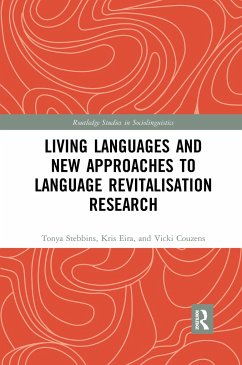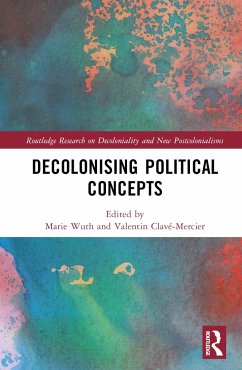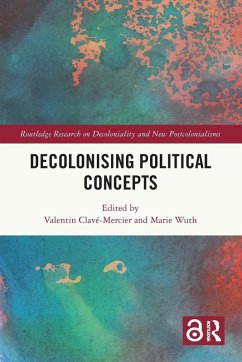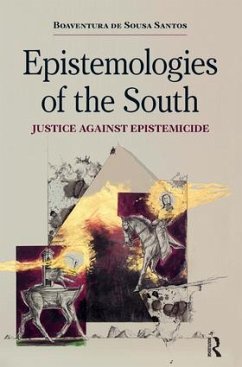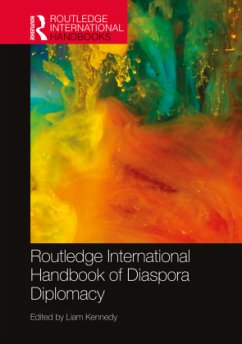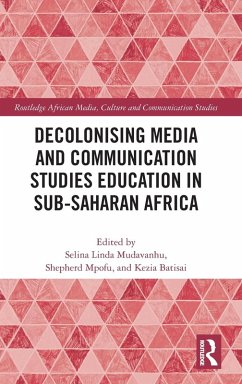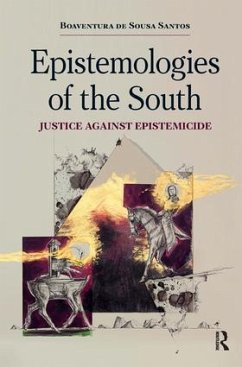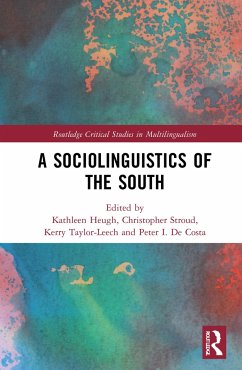
Decolonising Digital Media and Indigenisation of Participatory Epistemologies
Languages of the Global South
Herausgegeben: Makananise, Fulufhelo Oscar; Madima, Shumani Eric
Versandkostenfrei!
Versandfertig in 6-10 Tagen
154,99 €
inkl. MwSt.

PAYBACK Punkte
77 °P sammeln!
The book provides valuable insights on decolonising the digital media landscape and the indigenisation of participatory epistemologies to continue the legacies of indigenous languages in the global South.It is one of its kind as it climaxes that the construction phase of self-determining and redefining among the global South societies is an essential step towards decolonising the digital landscape and ensuring that indigenous voices and worldviews are equally infused, represented, and privileged in the process of higher-level communication, exchanging epistemic philosophies, and knowledge expr...
The book provides valuable insights on decolonising the digital media landscape and the indigenisation of participatory epistemologies to continue the legacies of indigenous languages in the global South.
It is one of its kind as it climaxes that the construction phase of self-determining and redefining among the global South societies is an essential step towards decolonising the digital landscape and ensuring that indigenous voices and worldviews are equally infused, represented, and privileged in the process of higher-level communication, exchanging epistemic philosophies, and knowledge expressions. The book employs an interdisciplinary approach to engage in the use of digital media as a sphere for resistance and knowledge transformation against the persistent colonialism of power through dominant non-indigenous languages and scientific epistemic systems. It further advocates that decolonising digital media spaces through appreciating participatory epistemologies and their languages can help promote the inclusion and empowerment of indigenous communities. It indicates that the decolonial process can also help to redress the historical and ongoing injustices that have disadvantaged many indigenous communities in the global South and contributed to their marginalisation.
This book will appeal to undergraduate and graduate students, scholars, and academics in communication, media studies, languages, linguistics, cultural studies, and indigenous knowledge systems in higher education institutions. It will be a valuable resource for those interested in epistemologies of the South, decoloniality, postcoloniality, indigenisation, participatory knowledge, indigenous language legacies, indigenous artificial intelligence, and digital media in the Fourth Industrial Revolution.
It is one of its kind as it climaxes that the construction phase of self-determining and redefining among the global South societies is an essential step towards decolonising the digital landscape and ensuring that indigenous voices and worldviews are equally infused, represented, and privileged in the process of higher-level communication, exchanging epistemic philosophies, and knowledge expressions. The book employs an interdisciplinary approach to engage in the use of digital media as a sphere for resistance and knowledge transformation against the persistent colonialism of power through dominant non-indigenous languages and scientific epistemic systems. It further advocates that decolonising digital media spaces through appreciating participatory epistemologies and their languages can help promote the inclusion and empowerment of indigenous communities. It indicates that the decolonial process can also help to redress the historical and ongoing injustices that have disadvantaged many indigenous communities in the global South and contributed to their marginalisation.
This book will appeal to undergraduate and graduate students, scholars, and academics in communication, media studies, languages, linguistics, cultural studies, and indigenous knowledge systems in higher education institutions. It will be a valuable resource for those interested in epistemologies of the South, decoloniality, postcoloniality, indigenisation, participatory knowledge, indigenous language legacies, indigenous artificial intelligence, and digital media in the Fourth Industrial Revolution.





